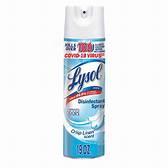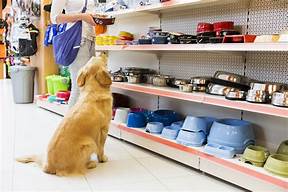Is Lysol Spray Safe for Pets?
Lysol is a brand name for a line of cleaning products, including disinfectants, sanitizers, and air fresheners. The active ingredient in Lysol products is usually a quaternary ammonium compound, which is a type of disinfectant that kills bacteria, viruses, and fungi. While Lysol products are generally considered safe for use around pets, there are some potential risks that pet owners should be aware of.

Risks of Lysol Spray to Pets
The biggest risk of Lysol spray to pets is that it can cause respiratory problems. The chemicals in Lysol spray can irritate the lungs and throat, and can cause coughing, wheezing, and difficulty breathing. Pets with asthma or other respiratory problems are especially at risk.
Lysol spray can also cause skin irritation. The chemicals in Lysol spray can cause redness, itching, and swelling of the skin. Pets who come into contact with Lysol spray may also experience hair loss.
If your pet ingests Lysol spray, it can cause gastrointestinal problems. The chemicals in Lysol spray can irritate the stomach and intestines, and can cause vomiting, diarrhea, and abdominal pain.
How to Keep Your Pet Safe from Lysol Spray
The best way to keep your pet safe from Lysol spray is to avoid using it in areas where your pet spends time. If you must use Lysol spray in your home, be sure to keep your pet out of the area until the spray has dried completely.
You should also avoid using Lysol spray on your pet's bedding, toys, or other belongings. If your pet comes into contact with Lysol spray, be sure to wash them with soap and water immediately.
If Your Pet Has Been Exposed to Lysol Spray
If you think your pet has been exposed to Lysol spray, call your veterinarian immediately. The symptoms of Lysol spray exposure can be serious, and early treatment is important.
Your veterinarian will ask you about your pet's symptoms and will perform a physical examination. They may also recommend some tests, such as a blood test or a chest X-ray.
The treatment for Lysol spray exposure will depend on the severity of your pet's symptoms. If your pet has mild symptoms, they may only need to be given supportive care, such as fluids and oxygen. If your pet has severe symptoms, they may need to be hospitalized for treatment.
Conclusion
Lysol spray can be a dangerous product for pets. If you must use Lysol spray in your home, be sure to take precautions to keep your pet safe. If you think your pet has been exposed to Lysol spray, call your veterinarian immediately.
Declaration: All article resources on this website, unless otherwise specified or labeled, are collected from online resources. If the content on this website infringes on the legitimate rights and interests of the original author, you can contact this website to delete it.




